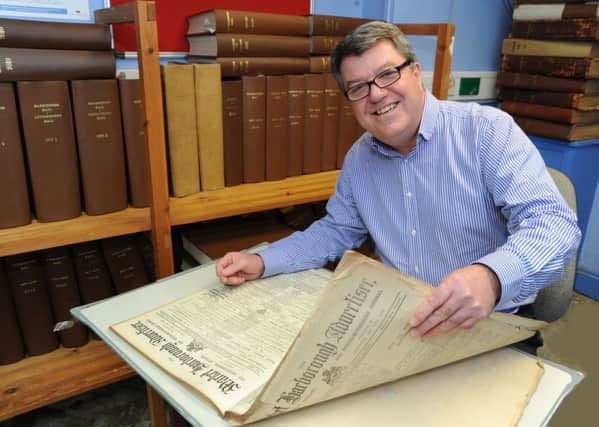See how Market Harborough celebrated the end of the First World War 100 years ago this weekend


The huge, outsize-broadsheet newspaper, which was the predecessor of the Harborough Mail, is being shown at the town library from 10am-4pm as part of its WW1 commemorations.
The exhibition will be overseen by John Dilley, former Mail editor and author of a real-time weekly column, which has summarised how the Advertiser covered the war using the archives a century later.
Advertisement
Hide AdAdvertisement
Hide AdJohn said: “It has been a privilege to write the column every week over the past four years for the Mail’s website and for my own Newspapers and the Great War website.
“Tens of thousands of readers have kept up with the highs and lows of how the town’s people – both in the trenches and at home – got through this incredible period in history.
“I hope some of those readers will take the opportunity to look through these remarkable newspapers, perhaps for a mention of a great-great uncle or grandfather, or perhaps to see references to shops, businesses and places that are still part of Harborough’s 21 st century fabric.”
John calls journalism the ‘first draft of history’ and his research has thrown up some remarkable discoveries.
Advertisement
Hide AdAdvertisement
Hide AdThere were two key findings: the Advertiser, along with other small newspapers around the country, regularly flouted the draconian censorship laws and did so by using the warts-and-all descriptions of life at the Front by the Harborough lads who were there – and who spoke with an eloquence that rivalled the celebrated war poets Owen and Sassoon.
John said: “What is also clear is that the Advertiser was at the heart of its community and was clearly trusted by its readership. Why else would women bring letters from husbands or sons fighting at the front and pass them on to the editor to publish?”